”Generous to a fault, Casanova plied his lovers with money and expensive gifts, whether or not he could afford it. And his generosity did not stop at the bedroom door. He understood the intricacies of the female orgasm, believed that the slightest inhibition spoilt love-making, and claimed that a woman’s sexual pleasure made up four-fifths of his own. A “new man” two centuries before the term was coined, he treated women as his equals in bed and out of it, and they adored him for it. Whether she was a servant girl or a duchess, if he genuinely liked a woman he would do anything for her. For him, an essential prerequisite of desire was respect.” ( Judith Summers )

Laura Clifford ''Giacomo Casanova (Heath Ledger) is legendary as a soldier, spy, writer, philosopher and adventurer but, mostly, he is best known as the notorious lover of beautiful women. It’s 18th Century Venice and Casanova, once again, is one step ahead of his latest conquest’s returning husband/father/brother/priest. It is also the time of the Inquisition and the love legend is wanted for trial because of his debauched ways in “Casanova.''
Yet, although it did not monopolize his whole attention, love, admittedly, was a subject to which he gave special thought, and the maxims that stock his autobiography would provide the contents of a small volume. As a passport to amorous success, he reccomends delicate, unremitting care. Casanova could topple a virgin’s resistance with a single glance. But persistence was key to his success: “I knew,” he wrote, “that there was not a woman in the world who could resist the assiduous care and constant attentions of a man who wished to make her fall in love with him.” On a more scabrous level, if a very young woman did resist, he found she was more likely to give in if he seduced her in the company of her best friend,or sister, because for each small liberty that one allowed him to take, the other would go a step further.
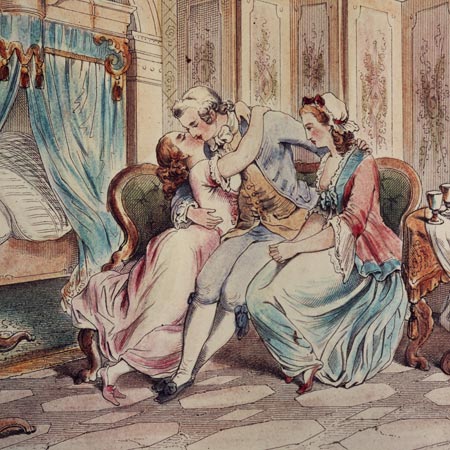
''There are many familiar reasons for today's sexual behavior, but the reason behind Casanova's relatively low tally lies more in the nature of his encounters: he was not merely seeking out sexual conquests; he was also pursuing love affairs. He was a sensualist (a ''friend of Venus''), but he was also attracted to women's intellectual charms -- and he frequently fell in love. To do that even 20 times in a single life remains an impressive achievement; to approach 100 is astonishing.''
But conquest alone did not satisfy him. Love making must bring into play all the powers of appreciation. In London, he refused to entertain a beautiful and fashionable courtesan, Kitty Fisher, because he could not speak English very well and she had no foreign languages: ”Accustomed to love with all my senses, I could not abandon myself to love unless I employed my sense of hearing”.
Casanova was a greedily sensual man. But he was an adventurer who thought and felt, and whose ability to think and feel was intimately connected with even his grossest pleasures. Although he was superstitious, he had escaped a sense of sin; and though occasionally cruel, when it did not interfere with his pursuit of amusement he was very often warmhearted. He possessed, moreover, an extremely valuable gift. By merely desiring to do so, he could immediately fall in love. Not all his affairs were genuine love affairs, but a surprisingly large number of his passing escapades would appear to have bred that vital spark.
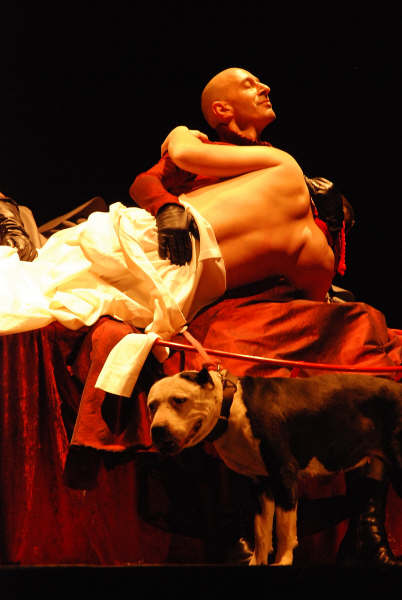
''Of course, a cynic might suggest that his professing to fall in love was all part of the seductive act and that his falling out of love so often was proof of his insincerity. Yet Casanova's memoirs are actually peppered with unfulfilled longing, disappointments and heartache. He experienced the gamut of emotions that love brings -- ''I had women, I played, I joined in the fun, I bawled, I scorned'' -- and he concluded that love is the strongest kind of curiosity, and ''when the curiosity is satisfied, the love disappears.'' ( Ben Crawford )
If Casanova was loved, he usually loved in return, until the inevitable moment when he knew that it was time to say goodbye. He was neither intentionally destructive , nor deliberately self-destructive. He was apt to see his role as that of a genial Priapus in the closed garden of eighteenth-century society, dispensing joy and, with it, enlightenment as he taught the women he encountered to understand their own needs.
Casanova began to compose his autobiography about 1789, during the last and saddest period of his life, at the Castle of Dux in Bohemia where he had been appointed honorary librarian by the good-natured owner, Count Waldstein; it is both a record and a testament, the story of the adventures he had lived through and a summing up of his private beliefs and discoveries. This extraordinary and fascinating book was still unfinished on his death; and, having remained in manuscript for nearly thirty years, it was at length presented to the reading public by the Leipzig firm of Brockhaus.
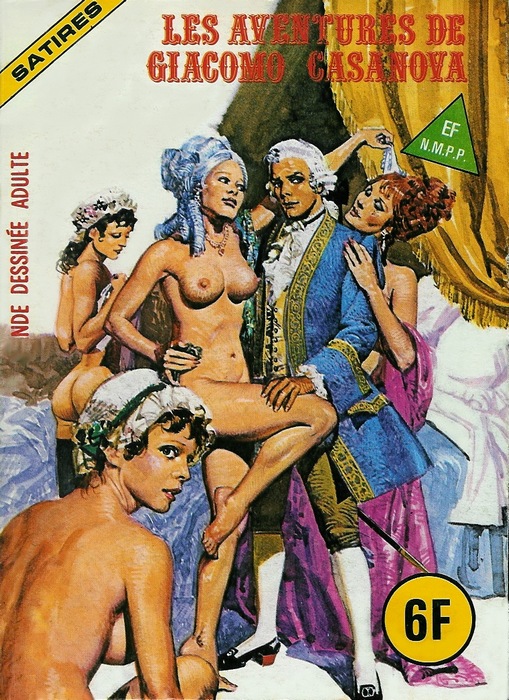
''But what makes Casanova most attractive today is that we see in him the prototype for the modern picaro who floats from city to city and scene to scene, collecting life experiences and flirting with various careers, relationships and spiritual-belief systems. Casanova himself was a cabalist, Freemason magician and Catholic abbot. His successors may be found traipsing the world circuits from Punta del Este to Salzburg, from St. Moritz to Sydney, carrying their yoga mats, polo mallets, surfboards or laptops. They are the ultimate slashies: model/D.J./advertising exec/Web creative/croquet pro/private banker. And they experiment with relationships and sex roles, from boy toy to breadwinner, from date-to-the-ball to tantric-sex partner.''
But the German publisher did not choose to print it exactly as it had been written, and enlisted the editorial services of a professor Jean Laforgue, resident teacher of French at a college in Dresden. Laforgue was a remarkably unscrupulous editor; he disliked Casanova’s French style, which is lively and energetic, if often somewhat incorrect, and in preparing the story for the pre
the final volume of the series appeared in 1838; he allowed himself the widest latitude.That Laforgue had taken serious liberties with Casanova’s text had long been known to every student of the ”Memoirs” ; but no disinterested reader had been permitted to examine the manuscript, and one could not tell just how ruthlessly or how sympathetically the professor had performed his function. For a time it was rumored that the precious papers had been forever lost; perhaps burned in an Allied fire raid, possibly abandoned and destroyed during the Russian invasion of East Germany. Happily, this proved untrue. The authentic ”Memoirs” show significant discrepancies to the Laforgue tactic of rewriting and expanding whole episodes. Typically, he enlarged and embellished some of the more obviously erotic scenes; the editor deliberately touched up original accounts of amatory experiences so as to invest the author’s direct descriptions with a specious air of Gallic naughtiness.
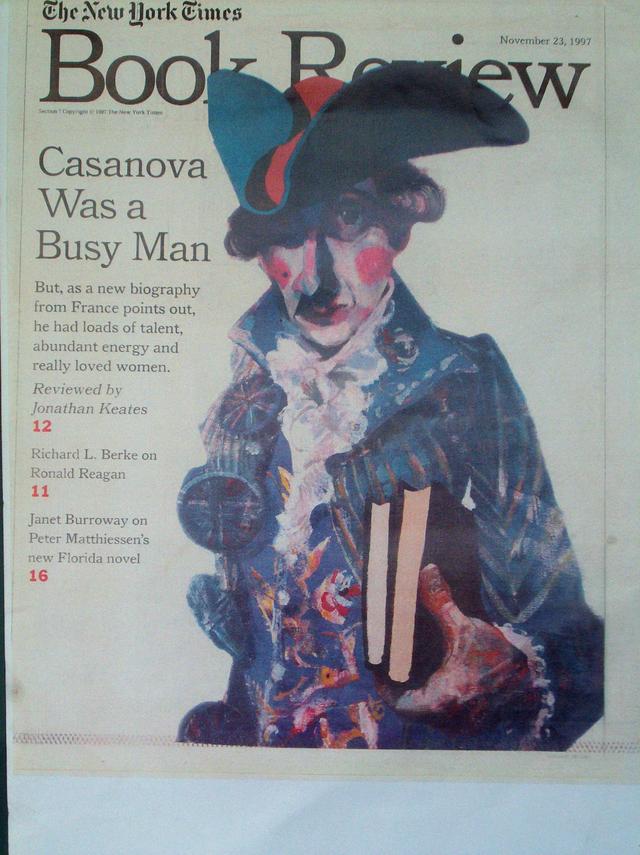
''The interest in remaking Casanova's story may seem like a thinly veiled justification for lots of coupling, both in and out of period costume. One famous episode alone inspired Pierre Louys's classic erotic novel, ''The Woman and the Puppet,'' which translated into such notoriously fetishistic films as ''The Devil Is a Woman and ''That Obscure Object of Desire.'' Fellini used the memoirs as the premise for ''Fellini's Casanova,'' which was one of his less appreciated films perhaps because of the unexpected casting of Donald Sutherland in the title role. ''
Laforgue’s sense of decorum, however, would occasionally overcome his taste for license ; and when Casanova, who was attracted to very young girls and not averse to the idea of incest, confesses that he had once thought of playing the Humbert Humbert with Sophie, a pretty little little girl he believed to be his daughter, Laforgue takes a firm censorious stand and cuts out the reference.
The memoirist was an accomplished storyteller, and his narrative gifts are especially apparent in the picture he draws of his disastrous visit to England. Everything about this strange country either puzzled or annoyed him. Casanova in England was the only place where a woman ever said ”No” to him, and the experience unsettled him for the rest of his life. The island named England, he wrote, had a color that was all its own, ” the waters of the Thames have a different savour…Cattle, fish, whatever one eats, taste differently from what one eats abroad; horses are of a peculiar breed… and men have a distinctive character.” England, he concluded, was a sea full of sandbanks, and those who sailed it should remember to be wary. On that wild and dangerous sea he was somehow taken off his guard and swept into an amatory crisis through which he floundered like an inexperienced youth.
The risks he and his contemporaries took may shock today but speak equally of a compulsion, linked to his womanising, his gambling and his travelling; a desire Casanova had to take risks, and to feel himself punished. His self-administering periods of enforced solitude and “clean-living” – with which he treated his gonorrhoeal urethritis – coincided with his first periods of writing and self-reflection. Later still his syphilitic depression also informed the pattern of his literary endeavours. His sexual memoir, like his sex life, was shaped by a more vivid and dangerous world than ours where a libertine’s overstated sexual machismo risked radical punishment: disease, genital mutilation, impotence, death. His writing sought meaning, a story of a life framed in sensuality, but there was also a rake’s progress in contemplation of risk.
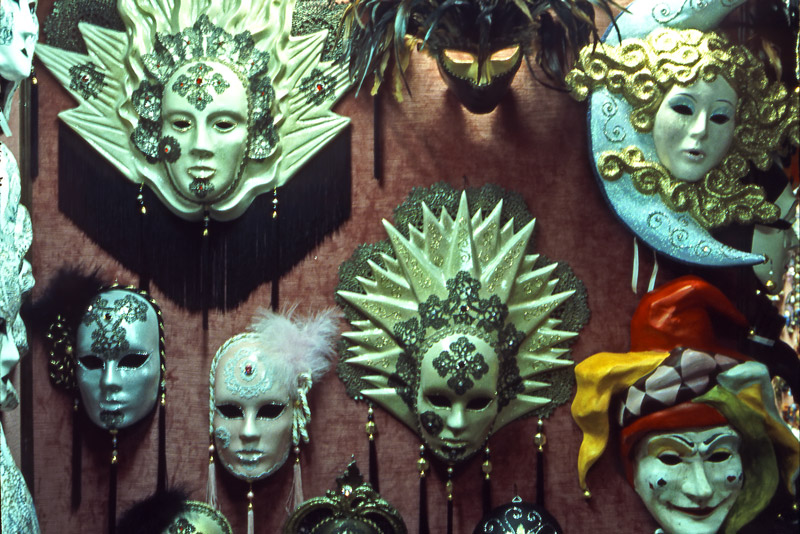
''Giacomo Casanova is the character who best represents the pleasure-seeking, lusty, and decadent side of 18th century Venice. A very complex and faceted personality, while still alive considered a magician, man of letters, spy, libertine, prison-breaker, passionate gambler, faker, traitor, seducer, card cheater, poet, slanderer, con-man, villain, blasphemer, alchemist. Protected by his trademark mask, he attended the best drawing rooms, the most fashionable theatres, and the Ridotto, where he squandered gold ducats at the card tables, and at times the most squalid houses of pleasure were not beneath him: everywhere he went he left a whiff of scandal, frenzy and liveliness.”
In further regards the sexual landscape in which Casanova moved was different from our own, perhaps never more so than in attitudes to children’s sexuality, and to sex between adult men and young girls. Privacy as it related to human functions was impossible in eighteenth-century cities. Children were exposed daily to the sight of adult flirtation and even sexual activity, certainly in Venice, and Casanova found little difference in this between the back-streets of London’s Soho and the court at Versailles. He and his contemporaries were also bombarded with images of sexualised children – the “nice big omelette of infants” in the paintings of Fragonard and his ilk, as lampooned by Diderot. There was more naked child flesh in the paintings, frescos, sculpture and decorative arts of the period than any other representation of human corporeality. This reflected an attitude wildly different from our own. Neo-classicism, in its rococo form, harked back to an aspect of ancient civilisation obsessed with Eros, and images of putti, amorini, cupids: the anarchic spirit of sex represented in naughty children. Casanova expressed in his memoirs both the wrongness of what would today be termed paedophilia, but also an erotic vista he shared with his contemporaries, which included young girls. It is difficult to assess the ages of some of the girls and women with whom Casanova had sex. There is no doubt, however, that he regarded those in their early teens as fair game and, more, a connoisseur’s prize. This was in keeping with contemporary attitudes: Casanova notes that Lady Harrington’s daughters were considered suitable for the London marriage market in 1763, including her thirteen-year-old. ( Ian Kelly )
Havelock Ellis said of Casanova,” he loved many women,but broke few hearts”. Because of his friendship with Lorenzo Da Ponte, Mozart’s librettist, it is highly plausible that Casanova served as the basis of the Don Juan character in the Don Giovanni opera since Casanova helped Da Ponte with the script in Bohemia. There is a dichotomy between the crassness of repeated seduction and the finesse and care that Casanova and Don Juan gave to the art of love. Care that made them so irresistible to women and to the public eye. Casanova’s ”transcendental” qualities and well articulated understanding of sentimentality, and its relation to forces behind the Gothic movement, can be seen as a precursor to the romantic arts of Liszt, Berlioz, Paganini, Heinrich Heine, JMW Turner and so on.
”This was all the more the case in the demi-monde and sex-trade, where such huge prices were put upon actual and near-virginity that madams in London and Paris were known to have numerous tricks available to fake intact hymens. On the one hand, some of these country girls in city bagnios must have been victims of the grossest form of human trafficking. On the other, in terms Casanova might have understood, an “education d’amour” – the first sexual experiences of a young woman – might just empower them in a harsh era of the sexual economy. From Casanova’s point of view, the only redemptive feature of what he confessed to Feldkirchner was a “compulsion” to seduce virgins – in a letter that has only recently come to light – was that he may have believed he could save them from the worst of what might befall them, by treating them more kindly than most, as sexual equals who could thence use their power over men for as long as it lasted. In modern times, Casanova would, of course, be considered a criminal.” ( Ian Kelly, Guardian )
Its not that difficult to see how Casanova could ”strike out” with some of his English ”amours” . It may have been simply out of his depth, or lack of adequate preparation. Imagine an encounter with the equally libidinous Marianne Faithfull; the two of them encountering the mores of the late eighteenth century and commentating in the most beautifully drafted phrases, with each vying for the conquest…


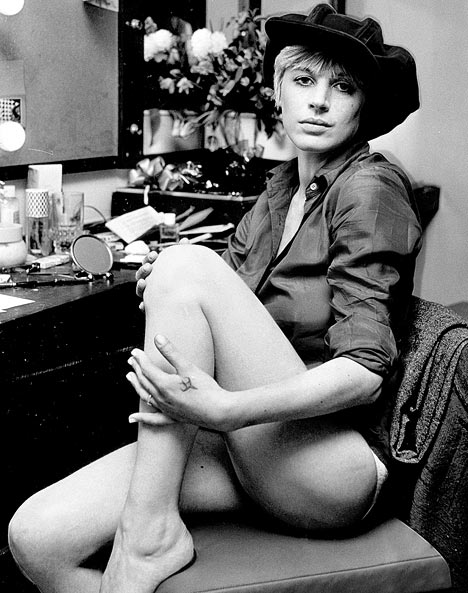



 COMMENTS
COMMENTS